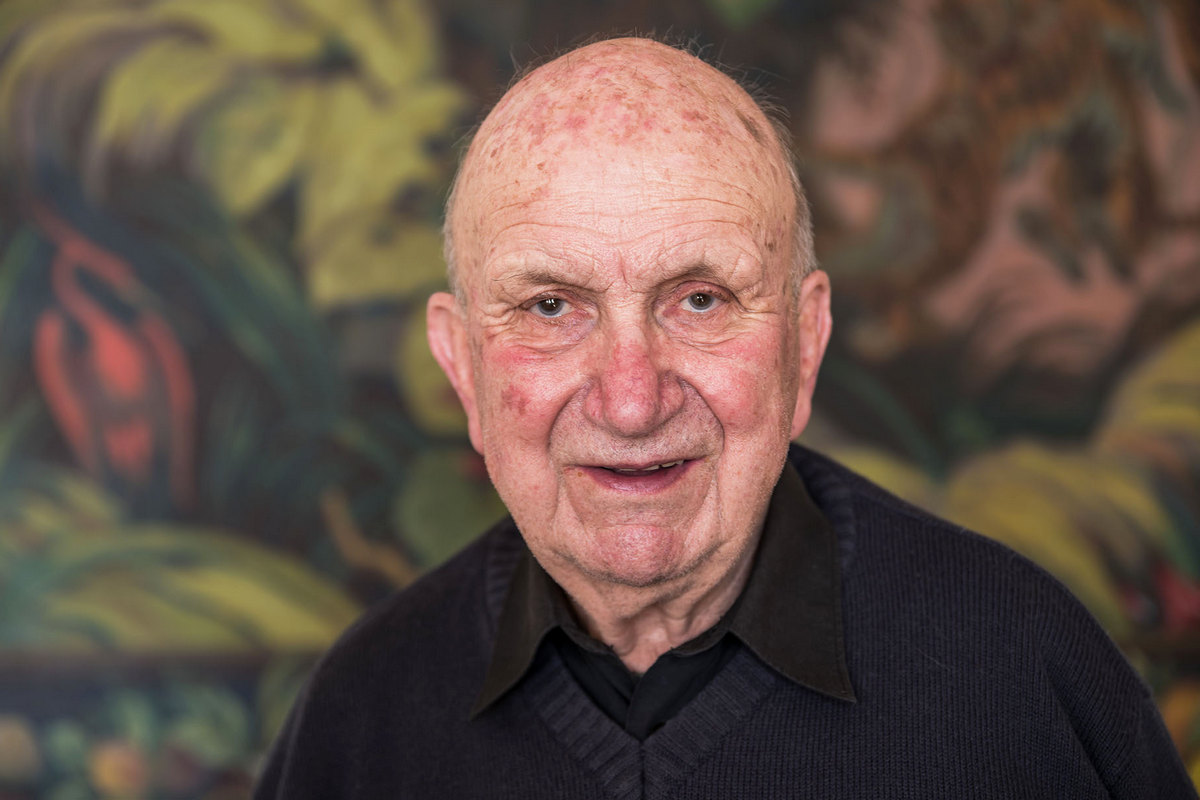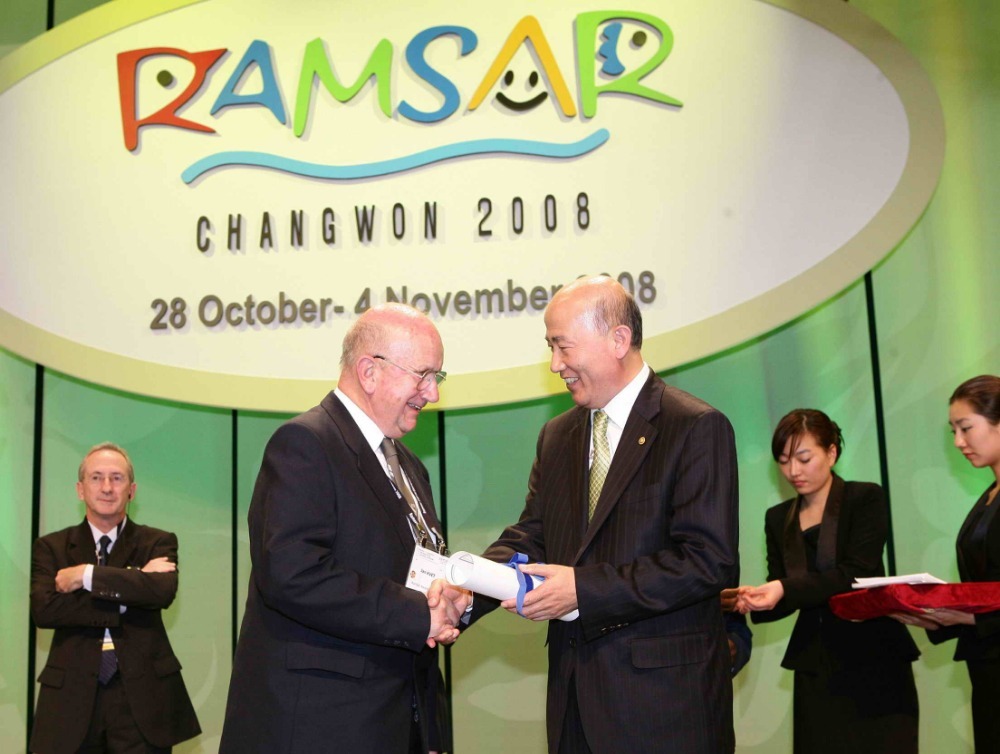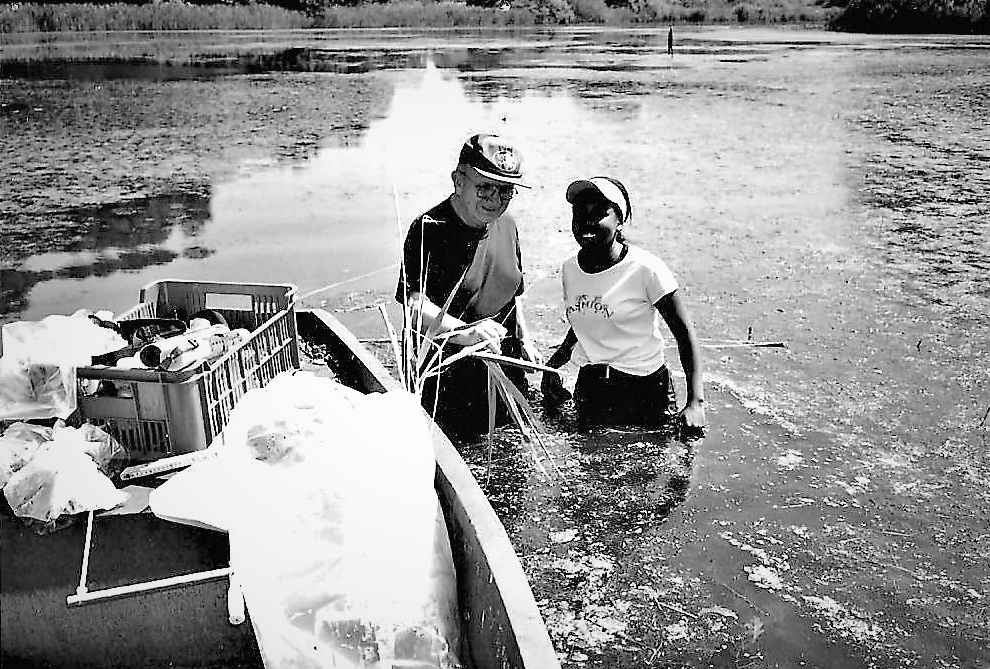26.08.2023
Jan Květ ninety years old
Botanist, plant physiologist, leading wetland and production ecology expert, and member of the Learned Society of the Czech Republic, honoured and beloved colleague RNDr. Jan Květ, CSc., dr. h. c., nicknamed Hony, will celebrate his significant jubilee on Saturday, 26 August 2023.
 Photo by Stanislav Vaněk, Vesmír
Photo by Stanislav Vaněk, Vesmír
In addition to his scientific and pedagogical activities, his public engagement is unmissable. During the November Revolution of 1989, he was elected strike committee chairman in Třeboň. In 1990-1992, he was a member of the Czech National Council for the Civic Forum and significantly contributed to the drafting of Law 114/1992 on the Protection of Nature and Landscape.
In the current issue of the magazine Živa, his personality is presented in more detail in the article Hony Květ 90 - in Science and in Human Community (PDF, in Czech) and in an interview with him conducted by Eliška and Marcel Rejmánek (PDF, in Czech).
From the interview: 'The main purpose of universities is to educate students. This, in my opinion, cannot be done without good relations with them. To create them, I have tried to apply the proven principles of Scout education appropriately. It seems to me that students who take their studies seriously are comfortable with this approach. But the students were also said to be quite worried about my exam questions. Perhaps this was because I demanded a logical explanation of the correct answer rather than simply reproducing it."
Jan Květ's memoirs are available on the Memory of Nations project website.
 Seventeen-year-old Jan Květ as a new member of the Czechoslovak Botanical Society exploring one of the pools in the Elbe region (1950). Photo by Jan Květ.
Seventeen-year-old Jan Květ as a new member of the Czechoslovak Botanical Society exploring one of the pools in the Elbe region (1950). Photo by Jan Květ.
RNDr. Jan Květ, CSc., dr. h. c.
Jan Květ was born in Prague; in 1956, he graduated in plant anatomy and physiology at the Faculty of Natural Sciences (at that time between two reorganizations, temporarily Biology) of Charles University. From 1962 to 1963, he studied at Oxford University. From 1956 to 2002, he worked at the Botanical Institute of the Czechoslovak Academy of Sciences (later the CAS) in Průhonice, Brno and (since 1973) in Třeboň, and from 2003 to 2022 he worked at the Institute of Global Change Research of the CAS.
In 1990 and 1991, he contributed to the establishment of the University of South Bohemia and its Faculty of Biology (now Faculty of Science), where he worked from 1993 to 2019. Josef Rajchard from the Faculty of Agriculture, the first university course on wetland ecology in the Czech Republic.
From 1965-1974 he was involved in the International Biological Programme (IBP) by coordinating research on photosynthetic plant production, in which he also coordinated the newly established working group on wetland research from 1970. In the 1970s, he worked on the Czech National Committee for the UN ESCO Man and Biosphere Programme.
 Jan Květ in South Korea, receiving the Ramsar Convention's Recognition of Excellence award for wetland conservation from the South Korean Minister of the Environment (2008). Photo by Jan Květ
Jan Květ in South Korea, receiving the Ramsar Convention's Recognition of Excellence award for wetland conservation from the South Korean Minister of the Environment (2008). Photo by Jan Květ
Why didn't Jan Kvet become a professor despite his scientific and teaching credits? We quote from the article mentioned above in Živa:
"Although Hony educated many young professionals, this activity had to be done quietly under the Communist regime because of his religious beliefs. After the change in 1989, however, he used his experience and teaching skills and actively participated in founding the University of South Bohemia. He was instrumental in establishing the Faculty of Biology, now the Faculty of Science, where he co-developed the curriculum for Ecosystem Biology and the contents of the department of the same name. From the beginning, he lectured and trained students at all levels of study."
"His teaching activities, combined with his scientific erudition and human and social attitudes, already amply fulfilled the requirements for the academic degree of professor. Yet he was not appointed professor. This was not due to the unwillingness of the faculty to organize the appointment procedure. On the contrary. The existing legislation and Hony's principles prevented it. The legislation prescribes that the academic degree of a professor must precede the award of the academic degree of an associate professor. No exceptions are possible. Thus, Hony would have had to prepare a habilitation thesis and go through the habilitation procedure, and only then prepare the documents for the appointment procedure. This was a somewhat tortuous solution for a man of Hony's scientific and pedagogical erudition. He did not agree to an accelerated two-stage process in his more than 60 years. The results of his work were and always are more important to him than the degrees."
 Aquatic macrophyte sampling with an East African student from the UNESCO postgraduate limnology course. Stehlík pond, Třeboň region, 2003. Photo Štěpán Husák.
Aquatic macrophyte sampling with an East African student from the UNESCO postgraduate limnology course. Stehlík pond, Třeboň region, 2003. Photo Štěpán Husák.